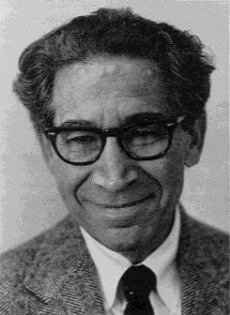
The psychologist Leon Festinger became very interested in how we maintain order in our minds in a world where there is actually very little organisation, and much that occurs is very random. He believed that a key part in our comfort was perceiving order in the world around us, and suggested that without this order we would be in a constant state of anxiety, since we would never know what was going to happen or how to behave. It is because of this, he posed, that we make our lifestyles consistent, by imposing rules, such as only eating at mealtimes, behaving differently for different seasons and choosing favourites in order to achieve best happiness.
However, a problem is caused when we cannot follow our routines. If we always sit at the same table for lunch, but there are no spaces on one day, we are made anxious because we have to decide on somewhere else to sit. The anxiety is caused since we have to accept that we are acting contrary to our beliefs. This uncomfortableness was termed by Festinger as ‘cognitive dissonance’, and he suggested that we must find some consistency in the new action and our belief for us to feel comfortable again.
Festinger believed that this was a quality that made it very hard to change people’s beliefs. He believed that if something occurred that was contrary to a belief, the anxiety caused by changing the belief would be too strong, the original belief will simply be amended slightly to reflect the issue that had arisen. He tested this theory on those believing in a conspiracy theory, where a flood created by aliens was destined to end the whole world on the 21 December 1954. He questioned those believing in the conspiracy both before and after the event and found that their behaviour was contrary to what would be predicted.
While it would be common sense to assume they would abandon their earlier beliefs after the flood did not occur, this is not what Festinger found. Instead, those believing in the event apparently found new evidence suggesting that due to the group’s dedication to letting everyone know about the flood, it would no longer occur, and so the group became stronger believers in the power of the apparent aliens who were going to cause the flood because of this. This fitted into Festinger’s theory, since to accept that they were wrong would have caused great anxiety, particularly if they put a lot on the line to appease the aliens and escape the flood, so they instead amended their belief to suit what they had seen.
Because of this evidence, Festinger believed that when a person has conviction about something, it is almost impossible to change their mind, and evidence or rational argument will do nothing to disprove their belief. This kind of issue can be seen in all kinds of real world examples and is very relevant to society. It is perhaps one reason why racism and prejudice are still so common in the world today. An example of this is when those who have homophobic beliefs still have gay friends. They get past this issue with their beliefs by believing that all other gay people are bad, but that their friend is the exception.
It is a controversial issue, but is one that must be considered in modern society. The best that we can do to work against this irrational way of thinking is to consider our own beliefs and make sure that we are not falling victim to unhealthy thought patterns.
Image from: http://kiefer.pbworks.com/f/1225073966/ltn_max_59.jpg

0 Comment:
Be the first one to comment on this article.